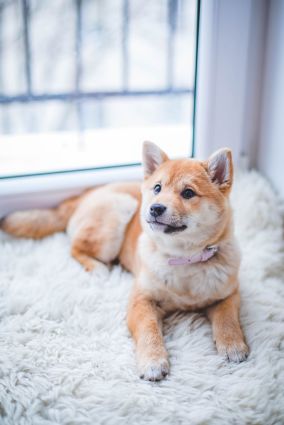DIY Dog Training: How to Stop the Chewing Problem
Is your dog chewing everything in sight and turning your home into a chewed-up zone? It is high time you took action and put an end to such unwanted behavior. With some DIY dog training, you and your pet will soon be able to live in harmony.
Understand why your dog has a chewing problem
The first step in dealing with the chewing problem is to understand why it is happening. There are three main reasons why most dogs chew on things:
- They are teething.
- They are bored.
- They are suffering from separation anxiety.
To stop them from chewing up your home, you will need to address these three issues.
Addressing teething issues
Puppies start teething between the ages of three weeks to six months, and it is normal for them to chew on things during this stage. However, you don’t want them to gnaw on your wooden furniture, oriental carpets, slippers, shoes, clothes, wires, medicines, or other household items.

Such destructive and even dangerous behavior can ruin your home and could also end up harming your pets if they chew a live wire, eat something toxic, or get anything stuck in their throat. To prevent a tragedy and end the random chewing, you will have to redirect their attention to safe chew toys and chewable bones.
First of all, puppy proofs your house or keep your puppy confined to a section of the house where they cannot cause much damage or endanger themselves in any way. Secondly, keep a good supply of chew toys and bones around. Thirdly, set up a regular exercise and play schedule for your puppy.
Every time you catch your puppy chewing on forbidden things, reprimand them with a sharp “No! Leave it!”, take the items away, and give them the chewable toy or bone. Do this repeatedly, and, over time, they will learn that they can only chew on these, and everything else is off-limits.
And, in any case, after your puppy develops their permanent teeth, the urge to chew on things will go away.
Addressing boredom issues
Some dogs, well past the teething stage, may take to chewing on things because they are bored and want to have something to do to while away the time. If that fits your dog’s situation, consider what you can do to keep them mentally stimulated. You can make sure that they get regular and adequate exercise every day and schedule some DIY dog training and playtime too. Well-exercised dogs that get to spend sufficient time with their people are less likely to indulge in destructive behavior.
It is also a good idea to get them accustomed to spending time on their own and keep them supplied with smart puzzles, rubber bones, and flavored chew toys. You might also spray things with a chewing deterrent spray made of lemon juice or apple cider vinegar. It won’t be toxic to your pet, but as it won’t appeal to them either, they will leave off trying to chew the sprayed things.
Addressing separation anxiety issues
Dogs that spend too much time on their own may develop behavioral issues arising from stress and separation anxiety. They might take to chewing on things to relieve their feelings of being abandoned.
To resolve these issues, pay plenty of attention to your dog while you are at home and exercise them before leaving the house. That will allow them to relieve themselves and also get rid of the excess energy that they might have otherwise directed at destroying things. You can also get them used to being alone by leaving them for short periods and then returning without any fanfare. They will learn that wherever you go, you will always return. Once they get used to your going away, gradually extend the time that you are out of the house. If you are going to be away from home for very long hours, however, you might want to consider leaving your dog at a pet daycare center, with a pet sitter, or with a family member or friend. You can also install a pet camera that allows you to watch your pet and even speak with them from remote locations.

Leave a Reply